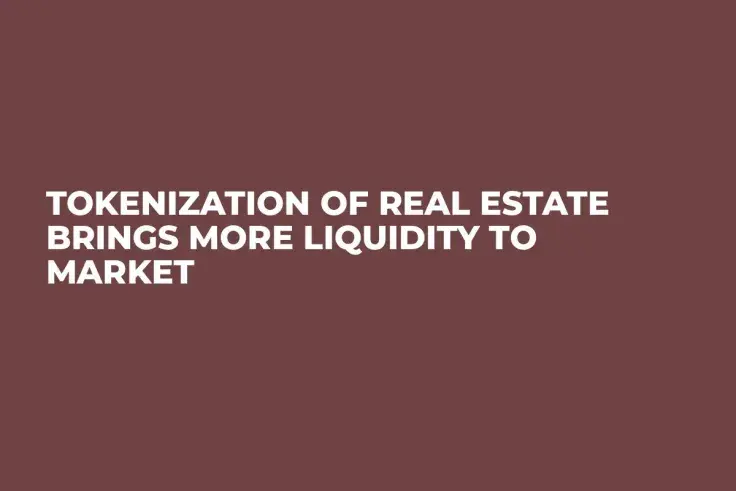
As the concept of tokenization is being realized more and more, the ability to turn illiquid assets into liquid ones is becoming very attractive to investors. The real-estate market is the most traditional and perhaps the largest market globally, with the total value of all developed real estate in the world at $217 tln in 2015.
While the real-estate market is relatively liquid, it still takes weeks to buy or sell the property and the fees to transact are high, generally $5,000 to $10,000 in closing costs for residential property, in addition to all the parties that are involved in a sale besides the buy and the seller.
An additional issue is the high cost of construction of new developments, which usually limits who can invest based on buying in at a minimum of $25,000 and higher for Real Estate Investment Trusts (REIT).
Tokenize property
Tokenizing property is as easy as creating a token on a smart contract, such as Ethereum, and instill value to that token in relation to the real asset. The important matter is how you want to manage the tokenized property.
An example of how this would work in real estate is illustrated as follows. Instead of putting down hundreds of thousands of dollars to buy only one piece of real estate, tokens for the property could be issued. You could pay a few thousand to buy a token from one house and then a few thousand dollars to buy a token from another house or development; these tokens could be priced lower to allow more buyers.
In this way, one spreads out the investment to create a portfolio. Tokenization also helps to make these assets liquid through the ease of selling them.
Proof-of-Asset Token
Let’s look at how the proof-of-asset (PoA) token would apply to a Real Estate Fund (REF). A REF is A real estate fund is a type of mutual fund that primarily focuses on investing in securities offered by public real estate companies. The majority of real estate funds are invested in commercial and corporate properties.
The primary digital trust fund divides its shares from a fund into smaller pieces and then turns them into tokens that can be bought and sold for the assets that are in an REF. After tokenization, the shares are securely stored by a custodian.
The digital asset manager sets up a digital trust fund that holds the assets that are backing the PoA tokens in an investment account with the custodian.
To ensure the safety of the underlying assets, the digital trust fund will hold exactly the same fund shares as that of the tokens which were issued. In this manner, each token is backed by a share.
Investors receive PoA tokens, upon depositing the crypto funds for the investment option. The PoA tokens are the key to the real-estate assets acquired on a digital platform.
Another investment approach based on PoA is to sell tokens based on square feet of future apartments. After the tokens are released and sold, all the investors have the possibility to sell.
Selling their tokens will allow them to obtain the money invested in the apartment project. Furthermore, token price is stable and appreciates while the apartment is built.
Tokenization has great potential to transform one of the biggest and most traditional investment assets in the world.
The tokenization of real estate will bring in more investors by lowering the minimum to invest in new construction and investors can build a larger portfolio by not having to purchase physical assets but rather their token equivalent, thus making the real estate market more liquid and opening the door to new investors.
 Tomiwabold Olajide
Tomiwabold Olajide Caroline Amosun
Caroline Amosun Dan Burgin
Dan Burgin Godfrey Benjamin
Godfrey Benjamin